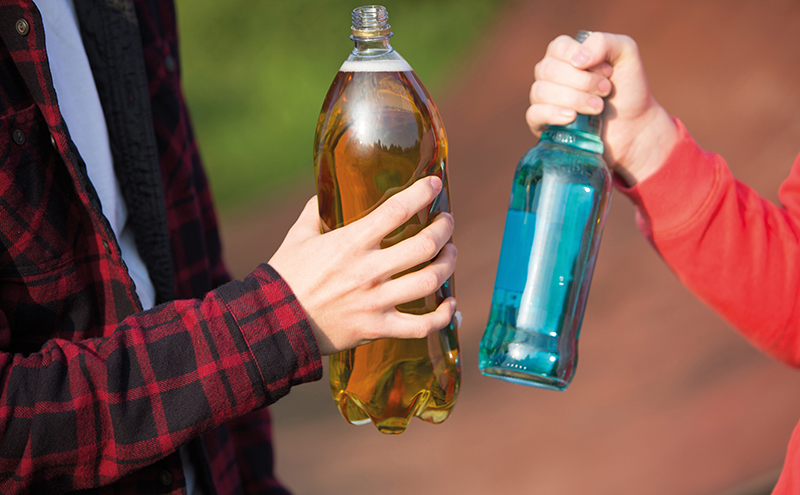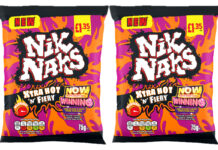One month in retailers assess the controversial policy

AFTER six years of debate and argument minimum unit pricing for alcohol finally came into effect in Scotland on 1 May.
With close to one month under the new regime, Scottish Grocer talked to some retailers to get a picture from the coalface of how one of the Scottish Government’s flagship policies is affecting the independent convenience sector.
• At Premier Smeaton Stores in Kirckaldy, the policy has had a positive effect on alcohol sales and has also helped overall basket spend.
Abada Akhtar explained that she and husband Asif, who runs the store with her, had prepared customers for the price change by displaying posters and explaining that the majority of prices wouldn’t go up. When the policy took effect, the reaction was fairly positive.
“In fact we’ve seen an increase in our alcohol sales,” she said.
“With the supermarkets not able to carry special promotions, local shoppers are seeing that our prices are just as good. Where previously they would trek to Aldi for a bargain, now they have no reason to pass us by.
“And when they are in the shop anyway, they are picking up other products.”
Another benefit Abada has seen is an improvement in anti-social behaviour in the area immediately around the store.
She explained that she and Asif have taken many steps to combat anti-social behaviour, including stopping selling alcohol after 8.00pm but now that they are selling less super strength cider the problem has rapidly improved.
She said: “We have stopped stocking some of the larger formats of strong cider like the 3L bottles and while some customers who would previously have bought these have moved to alternatives, there are some we don’t see any more.
Prior to the change, locals thought nothing of driving ten miles to Lidl or Aldi to get a 12-pack for £7.99
• Omar Nasir at Spar Motherwell said sales of large format strong cider have died and, while he hasn’t lost any customers, he and his staff are being verbally abused over the changes.
“Any cider under £5 is still selling and some strong cider drinkers are moving to lager. We’re selling more four-packs of lager and we’re getting through four cases a week of Merrydown 750ml instead of the one a fortnight we were doing before the price change.”
And on margins, Omar said: “Margins are up for retailers, but what is the point of higher margins if you’re not shifting anything?”
A potential rise in shoplifting of alcohol is another drawback that has been highlighted and Omar reckons it’s just good luck that he hasn’t been a victim.
“They are definitely trying. We installed CCTV just a few weeks before the price change, by coincidence, and particularly in an aisle stocked with strong cider we can see certain customers considering theft but being put off by the cameras,” he said.
Overall, Omar doesn’t think MUP is discouraging people from drinking. He noted that while 3L bottles of strong white cider are not selling, sales of other ciders and Buckfast have gone up.
• Sid Ali at Nisa in Peterhead finds it hard to identify a downside to the policy, reporting that alcohol sales across his four stores are up by between 15% and 20% since the start of May.
“It’s been fantastic, especially for rural stores,” he explained
“Prior to the change, locals thought nothing of driving ten miles to Lidl or Aldi to get a 12-pack for around £7.99 when we were having to sell ours at £8.49 or even £8.99. Now that we both have them at £10.56 there is no incentive to drive for miles.
Sid has also seen a rise in the sale of premium gins and, particularly, malt whiskies which he puts down to a narrowing in the price gap between standard blends and single malts.
All of Sid’s staff have gone through the Nisa online training package for minimum pricing as well as a one-to-one calculation exercise, but Sid is also turning to technology to ensure the rules aren’t broken.
“There is a simple piece of software that will do the sums for us,” he said.
“We are looking at incorporating that in our tills and will definitely be installing a program that will alert the user when they try to sell a product under the legal price.”
When pushed for a negative, Sid’s only concern was wastage: “What about reduced to clear? What do we do with beer that is going out of date or not selling if we can’t sell them at a cut price?”





















